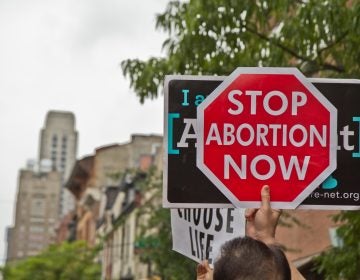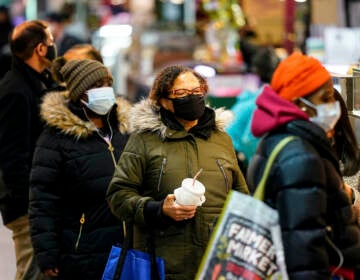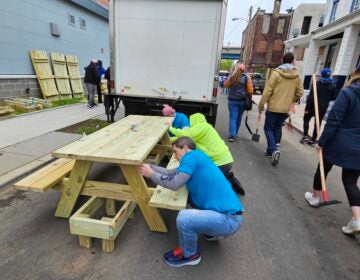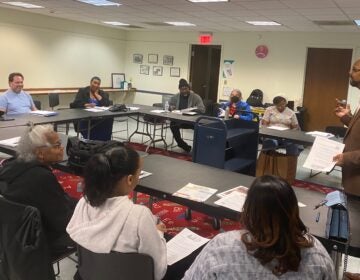The story behind Remembrance, an alternative memorial to Philadelphia’s HIV/AIDS crisis
Ron taught me the path to hope, and resilience is to ensure we don’t forget, or under-mourn, these tremendous losses incurred in our community, writes Chris Barlett.
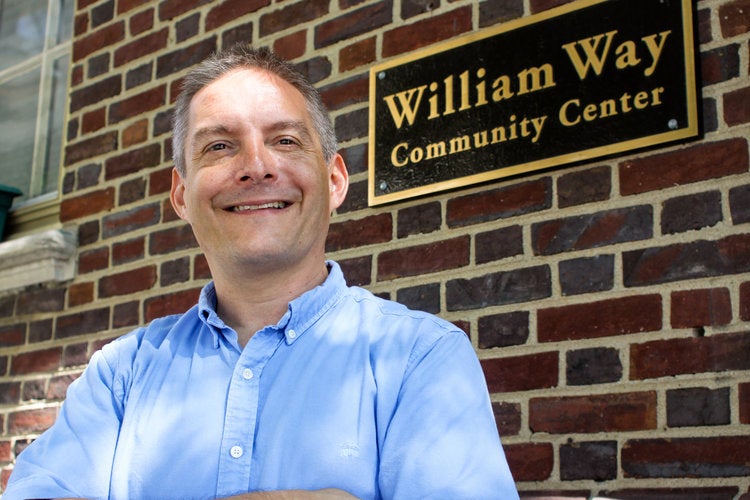
Chris Bartlett. (Courtesy of The William Way LGBT Community Center)
Nations have a long, necessary history of honoring war dead through memorials and rituals. In the United States, we build national monuments that draw millions of visitors each year. We stop and observe national holidays as a collective moment for society to reflect and bear witness to our painful, shared experience.
Although we find it important to perform these acts in the wake of war, deaths from epidemics are seldom memorialized. We brush them under the rug and move on, even though these deaths have a multi-generational impact on our collective psyche. In Philadelphia, we have a rich history of such deadly events, including the Yellow Fever epidemic of 1793, the 1918 flu epidemic, and the ongoing COVID-19 and HIV/AIDS pandemics.
As a 55-year-old gay man who has devoted my lifetime to LGBTQ issues, I am all too familiar with the pain of living through an epidemic that ravages a community. More than 40 years since the onset of the AIDS epidemic — with no end date in sight amid the continued search for a cure — my community knows the importance of reflection.
In 2005, I began a project to memorialize the lives of more than 8,000 gay and bisexual men who died of AIDS in Philadelphia in the early 1980s, when data was first starting to be collected. During my research, I had the honor of meeting a South Philadelphia funeral home director I had heard about from survivors who shared their early Philadelphia AIDS stories with me. As I interviewed these community members, one man’s name kept coming up: Ron Piselli.
It may be hard for some to remember, but there was a time in our city when a gay man who died of AIDS couldn’t be put to rest with dignity. Scores of funeral homes throughout the country would refuse to provide services to those who died of AIDS. From the early days of AIDS, Ron continued to open his doors to provide a loving, dignified, and caring funeral for Philadelphians who perished, often far too young, and sometimes without even the support of their own families. Ron wanted to make sure every person who came through his funeral chapel received the funeral he believed they deserved.
In a Dec. 16, 1985, Philadelphia Daily News article — less than four years after the first AIDS case was reported in the U.S. — Piselli was publicly featured standing up for what he believed: that “no one should be turned away.”
Introducing Ron, the article starts, “One undertaker who will handle AIDS cases is Ronald Piselli of Piselli Funeral Home on Ellsworth Street in South Philadelphia.” ONE. As word spread, families from around the region came to Ron to ensure their loved ones were both remembered and honored.
I met up with Ron in 2010, and we began a friendship that has imparted strong lessons about how to maintain hope in the face of a pandemic. Such resilience requires a perspective on life that treasures the memories of those we’ve lost, prioritizes kindness, and seeks to renew communities. Ron taught me the path to resilience requires that we never forget, or under-mourn, the tremendous losses our community has suffered due to AIDS.
Inspired by Ron’s work — and the stories of thousands of Philadelphians lost to AIDS — our city will have an HIV/AIDS memorial to remember and reflect. I am proud to announce Remembrance, an alternative memorial to Philadelphians and the HIV/AIDS crisis supported by funding from The Pew Center for Arts & Heritage. While many HIV/AIDS memorials across the country are largely physical in structure, Remembrance is a memorial experience with theatrical performances and oral histories, designed in partnership with local artists, activists, and community leaders.
In May, three-time Obie award-winning writer and director Ain Gordon will stage the world premiere of “These Don’t Easily Scatter.” Gordon’s new play is inspired by Remembrance’s oral history project undertaken to chronicle the stories of Philadelphia-area community members who have passed away unnoticed, with or without the love and support of families throughout the HIV/AIDS crisis.
And on June 25, in a stunning and profound “going home” ceremony titled “Gone and Forever,” a community procession and ceremony led by artist Alex Stadler will take place through the streets of Philadelphia to The Church of St. Luke and The Epiphany, devoted to Philadelphians who died of AIDS.
When Remembrance’s rituals take place in May and June, we hope you’ll join us to think about how you can bring remembrance and community building into your own rituals. It is imperative we honor those our community has lost to HIV/AIDS in a citywide ceremony, because the lives of these Philadelphians, our brothers, sisters, neighbors, schoolteachers, and community advocates can teach us lessons decades later that may carry us through the pandemic moment we currently live in.
By stopping for a moment to mark these deaths from the HIV/AIDS pandemic with the solemnity and reverence they deserve, we collectively open ourselves up to healing: the type of citywide healing where lessons can become part of our collective conscience. And we pledge to reflect together on how we can learn the lessons of our past, so we don’t have to repeat them in the future.
___
Chris Bartlett is the executive director of the William Way LGBT Community Center, the premier LGBT center in Philadelphia and throughout the Delaware Valley region. Visit Remembrance for a schedule of events.
WHYY is your source for fact-based, in-depth journalism and information. As a nonprofit organization, we rely on financial support from readers like you. Please give today.


